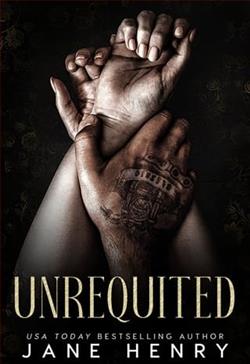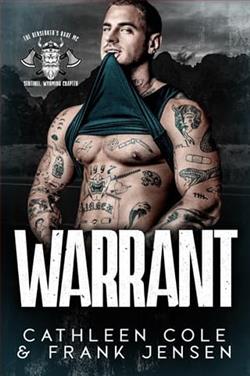Page 1 of The Lovers
PROLOGUE
The darkness was absolute, the interior of the chest smelling rank and damp. Their bodies were pressed together, crammed in an unnatural position, limbs stiff after hours of immobility. At first, there was still hope, but it had run out, as had the air, as the tight-fitting lid prevented even the smallest amount from seeping in. His arms felt like lead, but he gathered what was left of his waning strength and lifted his hand to her face. He didn’t need to see it; her features were burned into his brain, as were those of their child.Please, God, keep the babe safe.
Her skin was still warm, but she was already gone, as surely as he would be in the next few minutes. His lungs were already burning, a sheen of sweat covering his face. He pressed his lips against her unresponsive mouth in a final kiss as a last thought flashed through his dying brain:
It was all worth it.
ONE
OCTOBER 2013
London, England
Sean Adams leaped from the cab of his digger and pushed his way through the crowd of men gathered around a large opening. For a moment, he thought it was a sinkhole, here in the middle of London, but what he was looking at was some kind of subterranean chamber that had been uncovered as a result of his efforts. The ceiling of the chamber—nothing more than a thin layer of rotted wooden beams—had caved in, revealing a narrow space beneath, the walls of which were solid stone. The men peered into the hole, curious to see what it held.
“Step aside, step aside,” Foreman Milne bellowed. He stood at the edge of the opening and shone a torch into the dark recess of the chamber. “What have we here?” he asked no one in particular as he removed his hard hat and scratched his egg-shaped head. Foreman Milne was a good-natured man most of the time, not averse to joining his crew for a pint and singing loudly and off-key once he’d had a few, but at this moment he was vibrating with irritation. He had no time for delays; he was on a schedule, and the management was breathing down his neck.
“What is it, boss?” someone called out. “A buried treasure?” The men chuckled. They found all kinds of rubbish at every new site: bits of furniture, rusted prams, sometimes even old cellars that had been used as air raid shelters during the last war, complete with tin cups, wooden benches, and old newspapers. Butthis looked different. The chamber was completely empty, except for one large rectangular object.
“Bring me a ladder, lads. A long one,” the foreman called. “Adams, you’re with me since we have you to thank for this ‘fortuitous’ find.”
Sean reluctantly followed his boss into the dank hole. The roof was mostly gone, but the walls were still intact, built of rough-hewn stone nearly a foot thick. They were cold to the touch, even on a pleasant day like today. The opening looked like it might have been a large well in its day, but there was no indication that it ever contained any water. The walls were not covered with mildew, and the packed earth at the bottom was dry as bone.
“Toss me down a pair of cutters,” the foreman called out to the men gathered at the top. “This thing appears to have a lock on it.”
The two men stood awkwardly next to what appeared to be an oversize sea chest. It took up most of the space, leaving barely any room for Milne and Adams to stand. The chest looked sturdy and was secured with a chain and an old-fashioned padlock, which was rusted with age and neglect. Foreman Milne gently kicked the chest with his foot, and the two men heard something rattle within. He then ran a finger along the lid. It came away dusty, but the wood beneath appeared to be in good condition. The chest was elaborately carved and painted, the colors still vibrant despite the layers of grime.
Sean was bursting with curiosity and wished Milne would just get on with it. His brother, Joe, worked on a site where they’d found a leather pouch full of antique coins. The story had been in all the major newspapers and even on the telly. Joe had been interviewed, and the segment had appeared on the news. The coins were now part of an exhibition at the British Museum, and Joe stilltold the story of his historic find every time he had a captive audience.
“Shall I do it, boss?” Sean asked the foreman, his voice quivering with excitement. The older man shrugged and moved aside as much as the small space would allow, his face creased with displeasure. He handed Sean the cutters and leaned against the wall, his arms crossed, his posture indicative of the impatience that he was trying to keep in check. Foreman Milne wasn’t the type of man who suffered from acute curiosity or an overactive imagination. He assumed they’d found some rubbish that would need to be cleared away, resulting in wasting several hours of their time. To him, it made no difference who opened the chest.
Sean cut the rusty chain and kicked away the lock when it clattered to the stone floor. He took a shaky breath before lifting the lid and peering inside.
“Jesus, Mary, and Joseph,” he breathed out as he quickly crossed himself. Sean stepped back, nearly colliding with Foreman Milne, who’d taken a step forward to shine a light into the chest. It was full of bones, the skulls grinning eerily out of the gloom.
The men above were craning their necks for a better look, blocking nearly all the light in the process. Someone already had his mobile out and was snapping pictures of the chest, the flash blinding in the dark space.
“No photos,” Milne bellowed as he stood in front of the open chest. “Get away with you. Sean, call the police. Now!”
TWO
OCTOBER 2013
Surrey, England
Quinn threw another log on the fire and went to pour herself a cup of tea. A steady rain had been falling since the night before, bringing with it a howling wind and a bone-chilling damp, which seemed to seep into the stones. The room was lost in shadow, the lowering sky and pouring rain having leached all light out of the October afternoon. But the fire glowed in the hearth, casting shifting shadows onto the stone walls and filling the room with a welcome warmth, the crackling of the logs momentarily blocking out the moaning of the wind.
Quinn sat down on the sofa and wrapped her hands around the hot mug. The heat felt good, so she held the mug for a few minutes without drinking, absorbing the pleasant warmth, which brought her a welcome sense of comfort. Despite the cold and the rain, it felt good to be home, even if that home wasn’t quite as she had left it. She’d returned to England only a few days ago, landing in Heathrow on a golden autumn morning. She’d collected her cases from the carousel and made her way out the door toward the queue of taxis waiting at the curb.
She filled her lungs with crisp air and smiled at the brilliant foliage, which stood out in jarring contrast to the cobalt blue of the cloudless sky. After months of relentless heat and merciless sun of the Middle East, it was lovely to feel a cool breeze on her face and the nip of the coming winter already in the air. Quinn looked as if she’d just come back from a tropical holiday, her face and armstanned to a golden glow. Still, the six months she’d spent on a dig in Jerusalem had left their mark, both physical and emotional, and she was relieved to be home at last. No one paid her any attention as she waited patiently in line for her turn at a taxi. To anyone who bothered to notice her, she was just an average young woman, casually dressed in jeans, T-shirt, and a worn leather jacket. Her dark hair was pulled into a messy bun atop her head, and her face was devoid of any makeup, except for some lip balm she’d put on before disembarking the plane. She looked like any other tourist, but in archeological circles she was a star, at least until the next big find.
Unearthing the Roman sword dating back to the Great Revolt of 66 CE was a tremendous coup. The sword had been discovered lodged in the drainage system running between the City of David and the Archeological Garden, and it was found only a few feet away from an ancient stone depicting a menorah. The menorah had been etched into the stone with something crude and sharp, like an old nail or a chisel, but it was close enough to Temple Mount to be of tremendous interest and confirmed what the original menorah might have looked like. Researchers from the Israel Antiquities Authority put forth various theories on the significance of the find.
Quinn had to admit that she had been more interested in the sword. It was still in its leather scabbard, which was miraculously well preserved. The scabbard kept some of the decorations from being obliterated by time and the elements, allowing a glimpse into Roman craftsmanship of the period. The sword likely belonged to a simple infantryman, but it was so much more than a sharp hunk of metal. It was not only a tool but also a work of art, a lovingly crafted weapon that would have been treasured and well maintained by its bearer. The sword would remain in Jerusalem, but Quinn had published her findings and had agreed to interviews with CNN, theBritish Archeology Magazine, and theArcheological Journal, scheduled back-to-back for the day after her arrival. The sword might be thousands of years old, but the news of its discovery would fade fast, and the interviews had to be published while public interest was still at its peak.
And now she was finally at home, having fulfilled her obligations and free until the spring semester began just after the new year. She’d intended to pick up a few classes at the institute, devote time to research, apply for new grants that would fund the next dig when they came through, and spend time with Luke. At least that had been the plan while she was still in Jerusalem, but things had changed.
It felt strange to walk into the house and face all the empty spaces. They glared at her like hollow eye sockets, eerie and blank. Luke had cleared out before she returned, partially to avoid awkwardness and partially because he’d been in a rush to leave. He hadn’t even given her the courtesy of breaking up with her in person. He’d dumped her via text, telling her that he had accepted a teaching position in Boston and would be gone by the time she returned. This was no longer their house, their little love nest, but it was still her home and, despite the sadness that filled the quiet rooms, she loved it.















